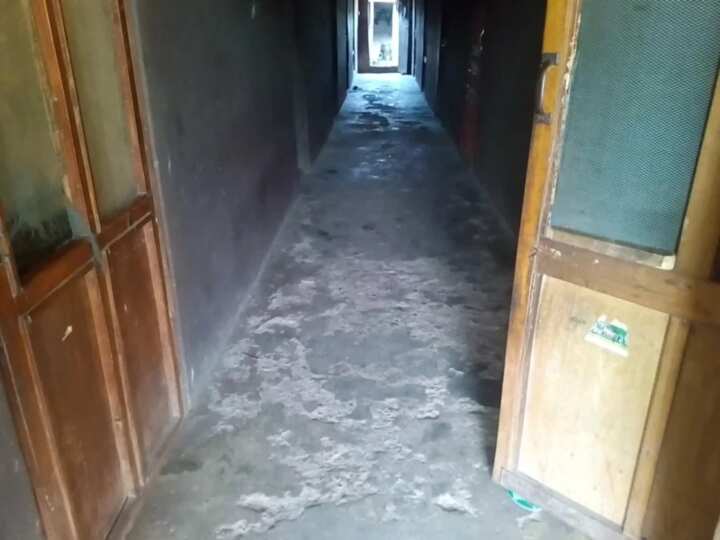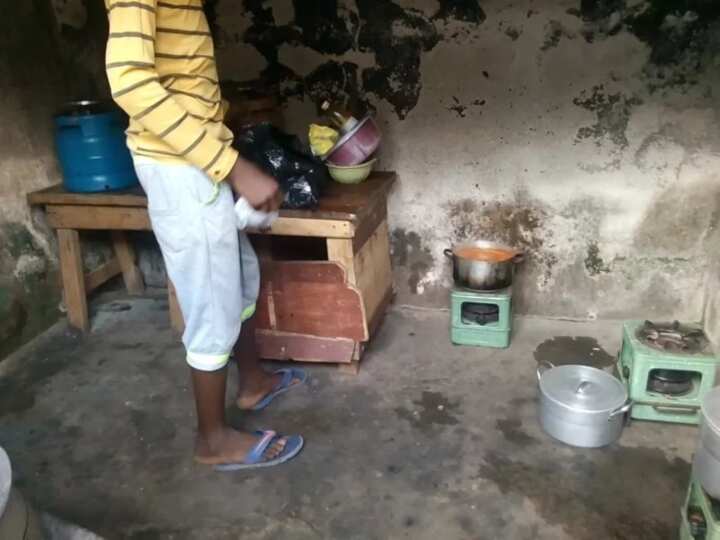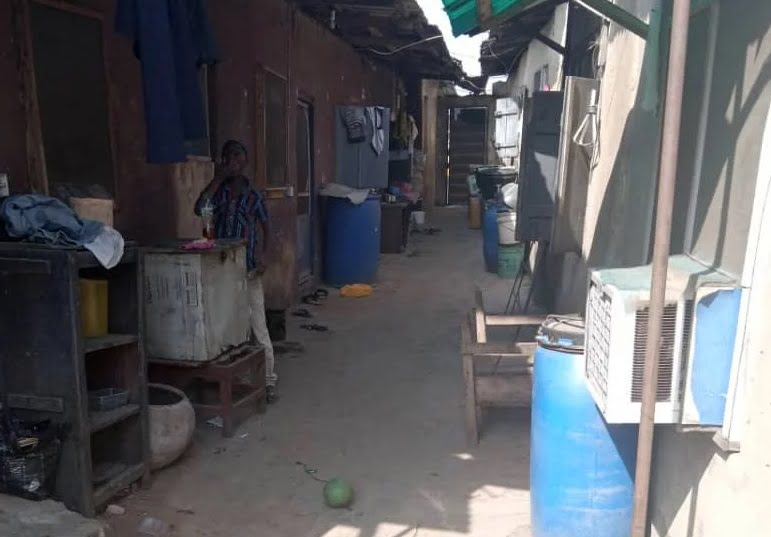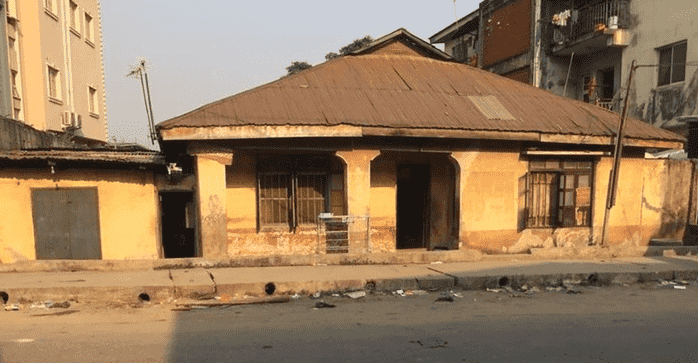Face Me I Face You houses have been in existence for ages and have become a familiar sight, particularly in states like Lagos, Oyo, and other southwestern states in Nigeria. These tenement buildings, also known as “Face Me I Slap You” due to the occasional conflicts, offer residential accommodations to many in the country’s lower class neighbourhoods. So, for those looking to rent a face me I face you in Ajah , Lekki or its environs – You may not be so lucky. In this article, we’ll explore the features of Face Me I Face You houses in Nigeria, the diverse personalities that reside within, and the unique sense of community that binds these residents together.
What is a Face me I Face you House ?
In simple terms, these type of houses are a particular type of tenement building with a set of single-room apartments or a “room and parlour” layout, where tenants share common facilities such as the kitchen, bathroom, and toilet. The rooms arranged in two rows facing each other (hence the name , face me I face you). Each row may consist of six rooms, sometimes accommodating as many as five or six individuals in a single room. This communal living arrangement presents both challenges and opportunities, contributing to the nature of face me I face you houses.

Features of Face Me I Face You house
Arrangement: These houses are usually organized into two rows, with each row facing the other. Each row usually consists of six rooms (or more in rare cases), sharing one kitchen, one bathroom, and one toilet. So, while the left wing residents share their amenities, the right wing folks do the same on their side.
Daily Struggles: With each room housing a sizable family of five or six people, weekday mornings are pure chaos. Everyone rushes to get ready for work, school, or business, often resulting in amusing scenes of chaos and misplaced items. It’s like a puzzle that rearranges itself daily.
Social Tensions: The name “Face Me I Slap You” didn’t come from thin air. It’s earned from the daily battles that happen. There’s a misunderstanding about almost every thing – “the NEPA bill is too high and I only charge my phone “ “I entered the bathroom before you” “ why did you use my water” “ why are you looking at my wife like that “ “ why did you beat my child “ .
You must always be ready to defend yourself because someone is always itching for a fight.

Types of People you’ll find in a Face Me I Face You
Here are some of the interesting characters you’ll find in a typical face me I face you house in Nigeria.
The Nosy Parker: Whether it’s the neighbourhood hairdresser or the busybody housewife, they’re the ones that know it all. They know every tenant’s gossip and secrets—no wonder everyone’s afraid of their prying eyes
The Educated One(Akowe): This is the neighbourhood genius. Kids in the building flock to this intellectual wonder to help them with their homework and he doesn’t disappoint. He could be running is post graduate program in a nearby university or a recent graduate. He’s like a walking encyclopedia, and trust me, you’ll be grateful for their presence
Madam No Nonsense (The Trouble Maker): Cross paths with thisperson, and you’ll wish you hadn’t. They demand respect and will give you a piece of their mind at the slightest provocation. Keep your distance, or you might find yourself caught in a storm.
The Chief Tenant: Imagine living in a place for over a decade and knowing every nook and cranny of the whole area. They can tell theorigin story of the area. They know the history of every family in the neighbourhood. They hold the key to the house’s history, and maybe even the landlord’s secrets. They’re the real OGs of this house.
The Advocate: This character is the kind spirited soul that fights for tenants’ rights and believes in the power of collective action. Before any decision needs to be taken, the advocate needs to be convinced.
The Akagum (The Bill Dodger): If there’s someone who knows how to enjoy the amenities without paying up, it’s the Akagum. They conveniently skip contributing to the bills, leaving others to foot the expenses. They even skip shared responsibilities like sweeping and cleaning the toilet.
The Borrower: It is like this character came in empty to the house. They always need to borrow something.Salt, maggi, vegetable oil, palm oil fork , spoon, fork powerbank?
Na Condition Bring Me Here (The Loner): Picture the introverted tenant who prefers solitude over socializing. They might have lived in posh areas before but had to adapt due to financial constraints. Give them space, and they’ll be just fine.
The Old Mama: this wise woman settles disputes with her years of experience. She sits outside, keeping a watchful eye on the street, and her nickname says it all—she’s the respected matriarch.
The Chronic Debtor: Bills? What are those? This person has perfected the art of delayed payments, and their excuses are legendary. From family emergencies to once-in-a-lifetime occurrences (repeated yearly), they’ve got an excuse for every season
The Rich Kid: This is a tenant like no other. While they may owe a bit of rent but their room is filled with luxuries the landlord can only dream of. Deep freezer, 50” smart Tv, Split AC, I better pass my neighbour generator plus solar power station. Other neighbours will usually come to charge their phones, watch premierhsip or even telemundo.
He’s also the charming big boy who brings different girls home like clockwork.Husbands usually warn their wives to stay away from this guy.

The Spinster: A neat and sophisticated lady, a bit older than the average tenant, and a master of the Queen’s English. She keeps her distance from the other women but, when provoked, can unleash her inner “werey” (madness).
The Errand Woman: The go-to lady for sending children on errands, but the kids aren’t her biggest fans. At her call, the children disappear into their rooms, pretending to be asleep. Her laziness is epic.
Despite the unique mix of personalities, Face me I face you houses foster a sense of community that’s unparalleled.Face me I face you houses are also places where strong bonds are forged. Here, neighbours become friends, and friends become family. In times of joy and sorrow, the solidarity among residents shines bright. The bond created by sharing daily struggles, laughter, and tears

